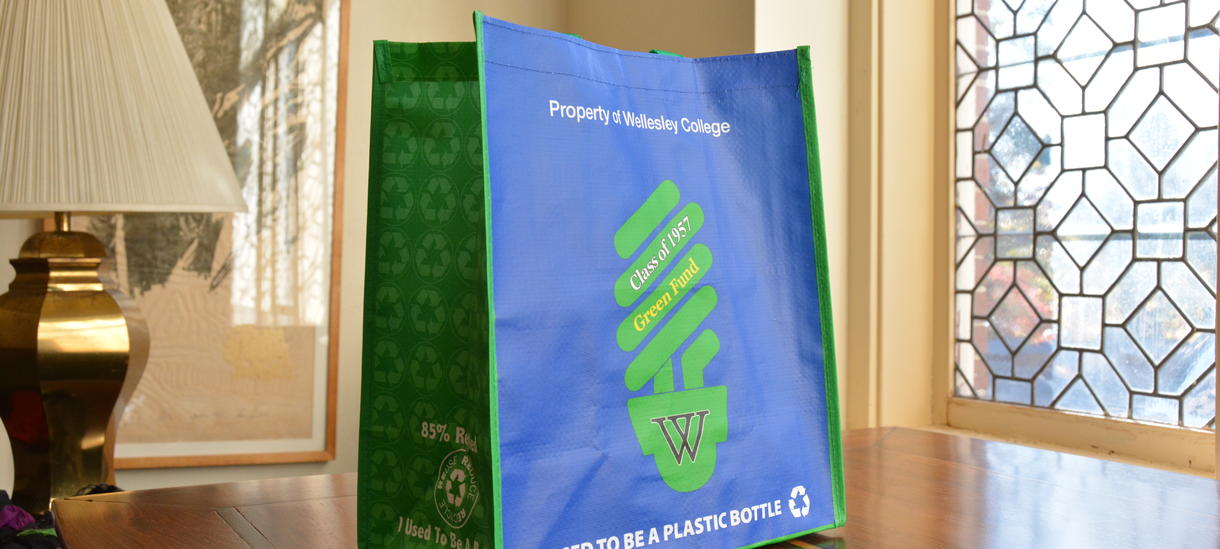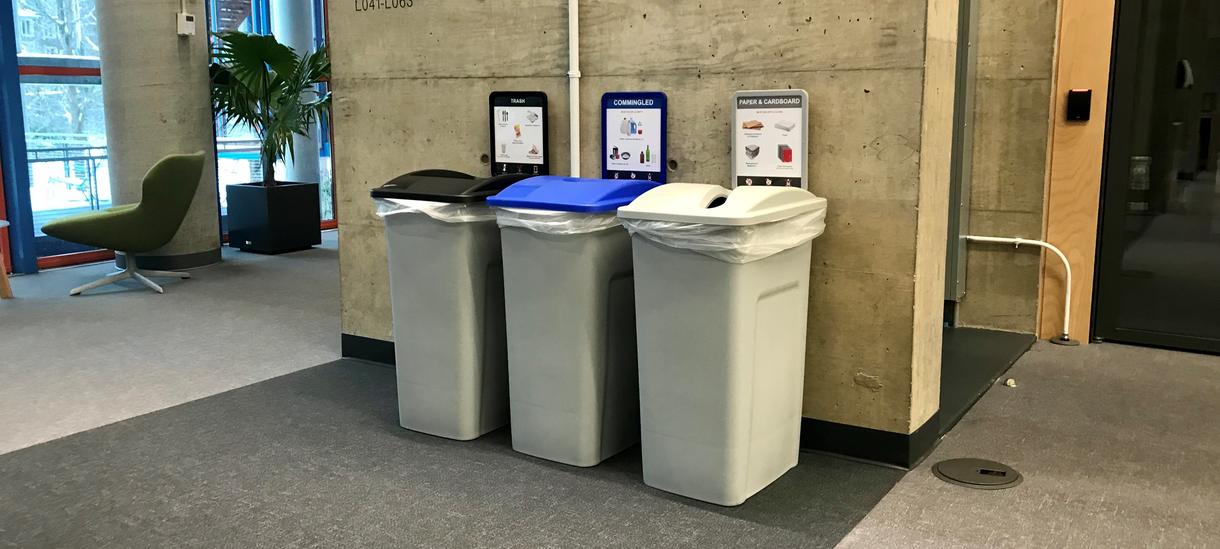Waste & Recycling Guidelines
In Massachusetts, there are waste bans preventing recyclable, compostable, and hazardous items from entering the waste stream. These bans help reduce the overall volume and toxicity of trash disposed of in Massachusetts. Look through this page for information on how you can help make Wellesley more sustainable by properly disposing of your waste.
Resources
For more information on Wellesley’s recycling system, check out the links below:
How to Host a Zero Waste Event
A zero waste event reflects a conscientious effort to reduce the total amount of waste created, and at which 90% of waste is either composted or recycled. At most events, the primary waste sources are food, plates, cups, and napkins, and on our campus, compostable versions of these items can be diverted from landfills with the proper planning. Our most successful zero waste events are ones that make all the tableware materials compostable.
-
Currently compost pick-up is limited to certain venues on campus.
-
Please email sustainability@wellesley.edu to find out if your event qualifies.
Waste Streams at Wellesley College
-
What’s Included: Empty #1- #5 plastic containers such as water bottles, milk jugs, yogurt cups, laundry detergent bottles; metal cans, clean aluminum foil; glass bottles and jars.
-
No liquids or food!
-
Still in doubt? Throw it out! It’s better to put unknown containers in the trash stream to avoid contaminating the entire commingled bin.
-
-
Bin Locations: Look for blue, labelled, commingled bins at recycling stations typically located near stairwells and communal kitchens in most buildings on campus.
-
In some residence halls (Pomeroy, Beebe, Munger, and Severance), take commingled items to trash and recycling rooms located in the basement.
-
-
Destination: Covanta Recycling Facility, MA
- What’s Included: flattened cardboard shipping boxes; flattened chipboard cereal/food boxes; newspaper; paper notebooks (wire is okay); softcover books
-
No greasy paper or used napkins/tissues
-
Textbooks/hardcover books should be donated during moveout
-
Still in doubt? Throw it out! It’s better to put unknown materials in the trash stream to avoid contaminating the entire paper bin.
-
-
Bin Locations: Look for gray, labelled, paper & cardboard bins at recycling stations typically located near stairwells and communal kitchens in most buildings on campus.
-
In some residence halls (Pomeroy, Beebe, Munger, and Severance), take paper & cardboard items to trash and recycling rooms located in the basement
-
Sometimes
-
-
Destination: Wellesley Recycling & Disposal Facility (RDF)
-
What’s Included: All food scraps (including meat, bones and dairy); teabags, ground coffee and filters; napkins and paper towels; BPI-certified compostable cups, plates, utensils etc.
-
No liquids!
-
-
Bin Locations: Look for green and labelled bins located at the recycling stations in the Lulu Wang Campus Center and in the dining halls.
-
If a compost bin is unavailable, these items should go in the trash
-
-
Destination: Agri-Cycle Energy Exter, ME
-
What’s Included: Food wrappers; styrofoam containers; plastic utensils; paper cups; soiled paper, tissues - anything that cannot be recycled!
-
Bin Locations: Look for black, labelled, trash bins at recycling stations typically located near stairwells and communal kitchens in most buildings on campus.
-
Destination: Covanta Facility, MA
-
What’s Included: batteries (tape the ends); small electronics; lightbulbs (wrap in bubble wrap); thermometers and other items containing mercury; pesticides
-
Bin Locations: There are special gray and purple recycling bins for universal waste in each dorm (on 1st floors or in laundry rooms, ask your EcoRep if you are having trouble finding them), the Knapp Center (1st floor of Clapp Library), and the Science Center.
-
Destination: Complete Recycling Solutions (CRS) in Fall River, MA


